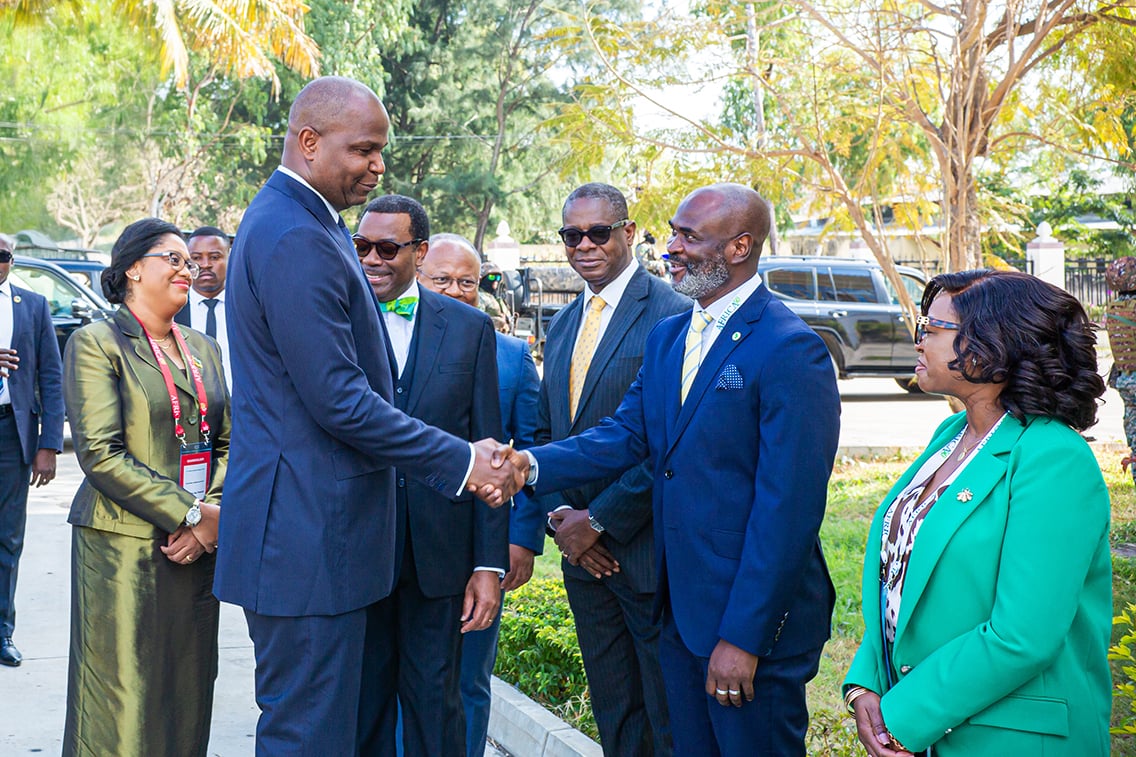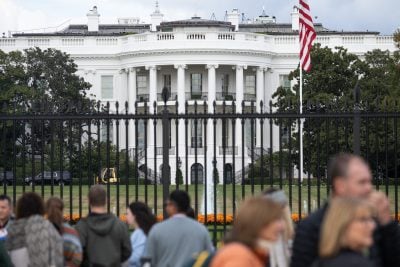This article was produced with the support of Africa50
In August 2025 the city of Maputo, Mozambique, became the focal point of Africa’s infrastructure dialogue as the Africa50 General Shareholders Meeting (GSM) convened under the banner “Scaling Infrastructure for a New Economic Era.” Hosted by the Government of Mozambique, the event brought together a distinguished assembly of development partners, business leaders and shareholders from across the continent and beyond, reflecting Africa50’s growing stature as a transformative infrastructure investment platform.
Infrastructure, trade, logistics and energy were at the centre of discussions, underscoring their pivotal role in shaping the continent’s economic trajectory. This high-level gathering took place against the backdrop of heightened global uncertainties, including financial volatility, rising geopolitical tensions and a retreat of development finance. In such an environment, the importance of African-led solutions for financing and implementing infrastructure has never been more urgent. Africa50, conceived as a project development investment platform by African governments in collaboration with the African Development Bank (AfDB), has evolved into a continental powerhouse, capable of mobilising both domestic and international capital to bring transformative projects to fruition.
In just about 9 years of operations, Africa50 has invested in 33 projects across 31 countries, representing over US$9 billion in value – addressing a portion of Africa’s estimated $170bn annual infrastructure financing gap.
Strategic achievements
The 2025 GSM, held under the high patronage of President Daniel Chapo, was also an opportunity to highlight Africa50’s strategic achievements. The Africa50 Infrastructure Acceleration Fund, which has successfully mobilised $275m from 22 institutional investors, 20 of them African – including sovereign wealth funds, pension funds and insurance companies – reflects the growing confidence in Africa’s infrastructure as a viable investment class. With 37 shareholders, comprising 33 African nations and four major institutions – the AfDB Group, Bank Al-Maghrib of Morocco, the Central Bank of West African States (BCEAO) and South Africa’s Public Investment Corporation – Africa50 has firmly established itself as a hub for continental development collaboration.
For Mozambique, the GSM presented a platform to articulate a national vision in line with continental priorities. Finance Minister Carla Loveira welcomed Africa50 delegates to the country, emphasising the importance of mutually beneficial partnerships and the need for bankable projects that could attract private sector capital. She noted that Mozambique’s membership in Africa50, which began in 2024, is central to accelerating infrastructure financing and integrating domestic development with regional and continental growth objectives.
President Daniel Chapo further elaborated on Mozambique’s ambitions, highlighting the nation’s abundant natural resources – including hydroelectric, solar and gas reserves – and its strategic positioning within the Southern African Development Community (SADC). His vision encompasses not only the expansion of energy generation and trade corridors but also investments in digital infrastructure, positioning Mozambique as a regional hub for industrialisation, logistics and technology-driven growth.
The president emphasised the country’s industrial strategy, which seeks to leverage private sector partnerships and abundant energy resources to build a sustainable and inclusive economy. He also underlined the importance of digital infrastructure in building a technology-based economy, noting that the expansion of fibre-optic networks and broadband connectivity is critical to enhancing regional integration and competitiveness.
Africa’s collective responsibility
Opening the meeting, Akinwumi Adesina, Immediate past President of the African Development Bank, framed infrastructure development as Africa’s collective responsibility. Drawing on the symbolism of the baobab tree – emblematic of resilience, longevity and community in African culture – he called for unity in financing and delivering transformative projects.
In his final appearance at the GSM as AfDB president Adesina reflected on Africa50’s journey from a bold concept into one of Africa’s most significant investment platforms. “Within eight years, Africa50 has become a leader in infrastructure financing in Africa, demonstrating creativity and innovation that transforms how we approach continental development,” he remarked, highlighting the organisation’s capacity to mobilise billions in funding and bridge critical gaps in energy, transport and digital connectivity. From a single staff member at its inception, Africa50 now employs 100 professionals, serving the 37 shareholders across 33 countries and four institutions.
Alain Ebobissé, CEO of Africa50, echoed these sentiments, describing the institution as a convening force for Africa’s development. He noted that the past year had been characterised by rising financial volatility, geopolitical uncertainty and economic nationalism, emphasising that Africa50’s agility and responsiveness positioned it to deliver results efficiently.
“We are focused on achieving results with speed and at scale,” he said. Ebobissé highlighted Africa50’s track record in connecting over 40m people to reliable electricity and investing in strategic projects such as Mozambique’s Ressano Garcia 175 MW gas-fired power plant, signalling the platform’s commitment to both national and regional development priorities.
Central to the discussions was Mozambique’s ambition to leverage its energy resources to drive national and regional growth. President Chapo highlighted the potential of Mozambique’s hydro, solar, oil and gas resources in facilitating industrialisation, regional energy exports and cross-border trade.
Landmark agreements
Landmark agreements announced during the GSM underscored this vision, covering power grids, trade corridors and digital infrastructure. These agreements, including a Project Development Agreement with Mozambique’s national utility Electricidade de Moçambique, will see the development of three high-voltage transmission lines spanning approximately 800 km, enhancing energy reliability and regional interconnections.
Infrastructure’s critical role in boosting trade was emphasised by Wamkele Mene, Secretary-General of the African Continental Free Trade Area (AfCFTA). He stressed that the cost of failing to connect African nations manifests in diminished competitiveness, constrained growth and limited employment opportunities.
Using the AfDB-financed Senegambia Bridge, linking Senegal and The Gambia, as an example, Mene illustrated how well-executed infrastructure can catalyse exponential growth in trade and mobility. He called for investment in both physical and “soft” infrastructure, including digital customs systems, interoperable transit platforms and electronic payment mechanisms, to fully realise the AfCFTA’s goal of doubling intra-African trade to 25 percent by 2030.
Panel discussions at the GSM explored critical levers for Africa’s development.
The first, focused on energy and industrialisation, highlighted the urgency of coordinated action between governments, development finance institutions and the private sector.
Admassu Tadesse, President of the Trade and Development Bank Group, emphasised the need for institutions like Africa50 to promote bankable projects that attract investment. He underscored Africa’s paradox of abundant natural resources contrasted with reliance on imported food, noting the potential for natural gas projects to underpin local fertiliser production and industrial growth.
Mmakgoshi Lekhethe, CEO of South Africa’s Industrial Development Corporation, stressed that infrastructure must precede industrial investment. Mozambique’s experience, including the Mozal aluminium smelter, demonstrates how strategic government participation can de-risk projects and attract private capital. Lekhethe also argued for a recalibration of Africa’s financial structures, noting that while African capital is abundant, much of it resides outside the continent in dollar- and euro-denominated investments, rather than being harnessed for domestic industrial development.
Pakinam Kafafi, CEO of TAQA Arabia in Egypt, drew on Egypt’s energy reforms in the 1990s as a blueprint for Mozambique. By gradually diversifying energy sources and building infrastructure, Egypt expanded electricity access and industrial capacity, paving the way for large-scale projects in fertilisers, steel and cement.
Kafafi emphasised that Mozambique, endowed with four to five times the gas reserves of Egypt, could replicate this approach to drive industrialisation if a clear government roadmap and supportive policy framework are in place.
Carlos Yum, managing director of the Mphanda Nkuwa Hydropower Project, further highlighted the importance of regulatory compliance, sector reforms and macroeconomic stability in attracting private investment and ensuring that benefits are equitably shared among government, investors, communities and industrialists.
A regional logistics hub
The second panel, focused on trade and connectivity, explored Mozambique’s strategic role as a regional logistics hub. Minister of Transport and Logistics João Jorge Matlombe outlined plans to modernise the Maputo, Beira and Nacala corridors, which serve both Mozambique and neighbouring landlocked countries such as Malawi, Zimbabwe, Zambia and the Democratic Republic of Congo. Improvements include port expansion, railway rehabilitation and road upgrades, complemented by digital solutions to streamline customs and trade processes.
Minister of Communication and Digital Transformation Américo Manga highlighted the role of digital infrastructure, including broadband expansion, fibre-optic networks and e-government platforms, in reducing administrative bottlenecks and fostering efficiency across sectors.
AfDB vice president Solomon Quaynor emphasised the integration of physical and soft infrastructure, citing the creation of special economic zones along transport corridors to stimulate industrialisation and attract private investment.
Boitumelo Mosako, CEO of the Development Bank of Southern Africa, elaborated on innovative financing models, combining sovereign resources, development finance and private capital to fund transport, energy and digital projects.
Wilfrid Flottes de Pouzols, director general of Scanning Systems, illustrated how modern inspection and scanning technologies at ports and border posts enhance efficiency, security and revenue collection, thereby making trade corridors more competitive and reliable.
Strategic outcomes
The GSM yielded significant strategic outcomes. The Project Development Agreement with Electricidade de Moçambique will deliver three high-voltage transmission lines, strengthening energy interconnections within Southern Africa and unlocking industrial growth opportunities. A memorandum of understanding with the AfCFTA Secretariat aims to establish interoperable digital solutions for customs and border management, reducing transaction costs and delays while facilitating the movement of goods. Africa50 and the Mozambican Ministry of Communication and Digital Transformation committed to a new data centre in Maputo, expanding the country’s digital backbone and supporting fintech, cloud services and private sector innovation. Additionally, the first close of the Alliance for Green Infrastructure in Africa (AGIA) marked a milestone in mobilising blended finance for sustainable infrastructure, a flagship initiative championed by Adesina.
In a closing fireside chat, Adesina reflected on his decade-long leadership at the AfDB and his legacy of transforming Africa’s development finance landscape. Under his guidance, the bank’s capital increased from $93bn in 2015 to $318bn, enabling the High 5 initiatives to impact over 565m Africans in energy, food security, industrialisation, regional integration and quality of life improvements.
Africa50, he noted, had emerged as a globally respected infrastructure platform capable of delivering transformative projects at scale. Adesina challenged perceptions of high investment risk in Africa, citing data that showed cumulative losses on African infrastructure investments of just 1.9 percent over 15 years – lower than in many other regions. He highlighted the continent’s demographic dividend of 420m young people, urging investment in youth-driven economic growth as a foundation for sustainable development. Looking ahead, the 2026 GSM will be hosted in Tanzania, offering an opportunity to showcase the country’s own infrastructure priorities and deepen collaboration with African and global stakeholders. Tanzania has prioritised infrastructure as the backbone of its economic transformation, encompassing upgrades to ports and logistics networks as well as investments in energy and digital technologies.
Africa50’s eight-year journey reflects a transformative model for African-led development. From a single-staff organisation to a continental investment powerhouse, it has mobilised capital, fostered innovation and partnered with governments to deliver impactful projects across energy, logistics and digital infrastructure. By demonstrating that African institutions can finance and implement large-scale projects with tangible results, Africa50 exemplifies a pathway for the continent to achieve sustainable growth and shared prosperity.
Through strategic partnerships, innovative financing structures and a focus on tangible outcomes, Africa50 continues to redefine Africa’s infrastructure landscape. Its work in Mozambique exemplifies the transformative potential of African-led investment platforms to deliver high-impact projects that underpin industrialisation, trade and regional integration. As Africa50 charts a course for future development, its model offers a compelling example of how the continent can harness its resources, talent and institutions to realise ambitious infrastructure visions and accelerate the continent’s growth trajectory.

 Sign in with Google
Sign in with Google 



